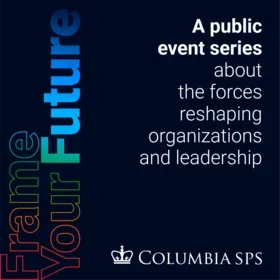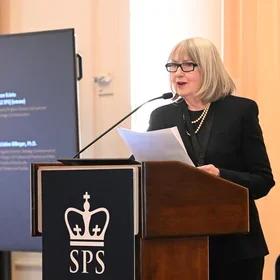On October 2, 2014 in Fairchild Hall, Bioethics students and members of the Columbia community gathered to hear a lecture by Jonathan Haidt, a psychologist and author of The Happiness Hypothesis: Finding Modern Truth in Ancient Wisdom and the bestselling Righteous Mind: Why Good People Are Divided By Politics and Religion.
The event was organized by the M.S. program in Bioethics at Columbia University.
"Our brains are reacting within a quarter second whether we like something or we dislike something. That then leads us to make a judgement about it; we think that it's right or wrong. That leads us to reason," he said. "But why do we reason when we already know what we think?"
He then applied his theory to issues that pertain to bioethicists. "Any moral issue that involves sex, food, surgery, organs – anything about the body – when disgust is involved, it really influences judgment," he said. "And that influences reasoning," he said.
To describe this concern with bodily purity, he used the term "sanctity." According to his online research through a survey hosted on yourmorals.org, the degree to which someone prizes sanctity can predict how he or she will react to various culture war issues. Those who align themselves strongly with the moral foundation of sanctity are more likely to be influenced by disgust when it comes to matters of the body. They are more likely to, for instance, oppose abortion.
"Even over and above the predictive value of politics, the sanctity foundation is just as good," said Haidt, at predicting our positions on controversial, bioethical issues. "And that is saying a lot in our polarized environment."
Haidt went on to discuss the other moral foundations, including care versus harm, fairness versus cheating, liberty versus oppression, loyalty versus betrayal, authority versus subversion. He explored the ways in which our peer groups influence our moral schemas and the ways in which morality "binds and blinds" when it comes to bioethical issues.
Haidt has given three TED Talks on politics, morals, and religion: "How common threats can make common (political) ground," "Religion, evolution, and the ecstasy of self-transcendence," and "The moral roots of liberals and conservatives." His lecture on the moral roots of liberals and conservatives has garnered over 1.9 million views.


